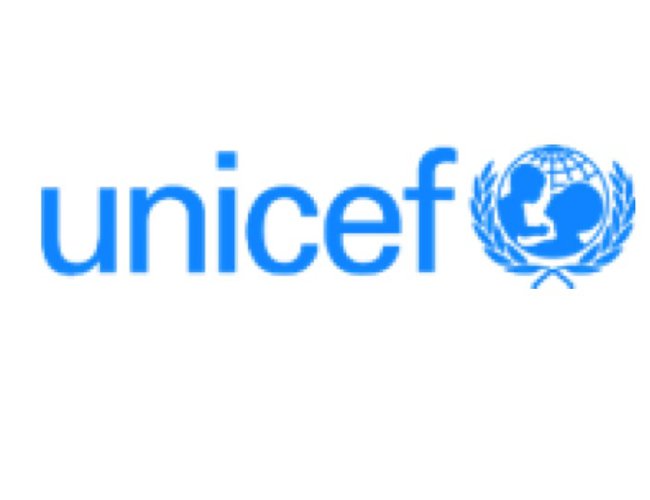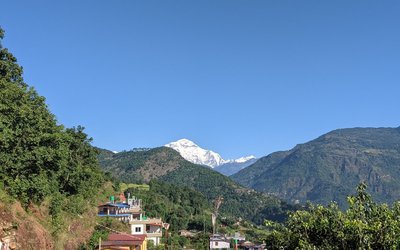
Religious leaders and representatives of faith-based organizations from across South Asia meet for the first time to discuss and advance children’s rights and well-being in the region.
On September 5, UNICEF South Asia launched the first South Asia Religious Leaders’ Platform for Children in Kathmandu. The launch brought together more than 30 influential leaders and distinguished representatives from various religious communities across South Asia to underline the critical role they can play in promoting the fulfillment of child rights and also to harness regional solidarity towards a brighter future for all children in the region.
In South Asia – home to 1.7 billion people and 621 million children under 18 – despite economic growth and consequent improvements, massive disparities still exist preventing children from living in dignity, reaching their full potential and making choices about their futures. With religious communities in South Asia having extensive networks and a moral influence throughout the region, their potential to tackle some of these challenges and achieve real results for children is highly advantageous.
“Religious communities and UNICEF have a long history of shared values and goals of advancing children’s rights and enhancing their well-being. They continue to be our indispensable partner especially in our focus on reaching the poorest, most vulnerable and hardest to reach children and families. If we can fully tap the enormous potential of our partnerships by building on each other’s strengths, we can achieve tremendous results for children,” said Jean Gough, Regional Director of UNICEF South Asia, during her opening speech.
This regional meeting is a milestone in bringing together religious leaders and representatives of various faith-based organizations across South Asia. It was also a unique opportunity to encourage open dialogue, even about complex and sensitive issues like child marriage and open defecation. At present, there is no such space to place children at the core of the regional religious agenda. Therefore, UNICEF’s objective behind the launch of this platform is to create a vibrant space for religious communities to exchange knowledge and best practices; engage in dialogue and discussions; and, encourage joint harmony, commitment and concrete actions for children in the region. The two-day meeting ended with the religious leaders’ declaration of setting aside differences in backgrounds, culture, and traditions and steadfastly carries forward their resolve to putting children’s rights and well-being at the center of their religious agenda and actions.
“We are extremely pleased to see you all come together united in your efforts and commitment to using your influential voice and support for the development of children in our region.We, at UNICEF, will now proactively nurture and expand this network of religious communities. We will also ensure that the discussion carries beyond the meeting room and find ways to translate our commitment to child rights into results, for EVERY child in South Asia,” said Philippe Cori, Deputy Regional Director of UNICEF South Asia, as he closed the two-day meeting.
Statements from religious leaders and representatives of faith-based organizations in eight countries in South Asia:
Afghanistan*: Preventing child marriage is an important area, which is the focus of our religious scholars. With the government and other partners, we are currently working to increase the age of marriage for girls from 16 to 18 under the Family Law. Polio eradication is another area in which religious leaders are involved, as we help to mobilize society to ensure all children are vaccinated against this preventable disease. The religious scholars in Afghanistan are taking these actions according to the teachings, rules, and values of Islam which protect children in all stages of their lives. Islam is friendly to children and pays great attention to their physical and psychological protection. – Professor Dr. FazlulHadiWazeen, on behalf of the delegation of the Islamic Republic of Afghanistan | *Afghanistan delegates were not able to attend the meeting but they shared this message with UNICEF.
Bangladesh: This ‘South Asia Religious Leaders’ Platform for Children’ is very important for sharing and learning from each other. Our religious leaders are more determined to continue working for socio-economic development and rights of children and women in the country.– Joint statement from the Islamic Foundation in Bangladesh
Bhutan: Children are everybody’s responsibility. While the ideas about all religious leaders in South Asia working for a common goal in realizing the rights of children will be an ideal desired goal, it would require taking a first real step. For Bhutan, this first step is building the capacity and sensitizing the religious leaders and faith-based organizations on issues impacting children and form an intra-religious group who can then become change agents to support the realization of children’s rights. – Dasho Karma Tsering Namgyal, Secretary, Council for Religious Affairs in Bhutan.
India: It is good that faith leaders from South Asia countries have come together to work for children with UNICEF’s initiative. Child marriage and education have emerged as common themes across countries. Without education, people cannot be empowered. Education is our third eye. Education starts from our mother’s womb and continues till the grave. In fact, the first ayat in the Koran is the significance of education. Koran preaches that we are all equal and everyone should get fair chances for education, health, and other opportunities. – Md. ShafiqueQasmi, President of Nakhoda Masjid, India
According to a press release issued by UNICEF, approximately 83.6% of our world identifies as belonging to a faith. In many South Asian countries, the role of faith is far greater with almost 90-99% subscribing to a faith. Thus, faith leaders have a huge role in solving the challenges that face our world. When interfaith alliances and dialogues occur, they must be to protect our most vulnerable communities, our women, children and indigenous and tribal populations. This is a great initiative by UNICEF to bring interfaith leaders together in Nepal for this two-day meeting to deliberate on and commit to working towards protecting and advocating for child rights. Let us now take this connection we have made to our congregations and bring about positive change for our children. – HH Pujya Swami ChidanandSaraswatiji, India
Maldives: Islam ensures safeguarding of children’s wellbeing as we consider it our duty to give our children, who is in the trust of our custody, access to health, education, immunization, care, protection and ultimately, to lead a dignified and secure life. Thank you for this opportunity. I am sure all UNICEF countries will make a joint effort to protect the rights of all children. – Utz. Ibrahim Rasheed Moosa, Centre for Holy Quran, Maldives.
Nepal: We want to use this platform to express our commitment to the rights of children in Nepal especially the education of children from poor family, promoting girls’ rights, strengthening of family values, ending child marriage, etc. We believe that interfaith harmony, through its values and activities, can truly empower children. – Joint Statement from the National Inter Religious Network Nepal
Pakistan: The ‘South Asia Religious Leaders’ Platform for Children’ has provided religious leaders with an excellent platform to develop interfaith harmony over child rights, understanding, and protection. This remained a very result-oriented and effective gathering to convince religious leaders of South Asia to safeguard and protect child rights in their respective countries. Such events are very powerful and influential in communicating the agenda very loudly and such gatherings must be continued. – Dr.Hafiz Ghurran Ali, Director International Management Development Centre, Pakistan
Sri Lanka: Children are God’s creation and everyone, including religious leaders, has a responsibility to take care of them, not just parents. We need to not only understand their rights but also protect these rights whether it is access to education, nutritious foods, or social protection. Sri Lanka has been through 30 years of conflict, which has exposed several generations to violence. We must work together to stop all forms of violence against children and instead build a happy, healthy and peaceful environment for children in the country. – BrahmachariDarshanChaithanya, Sri Lanka.
- TANAHU HYDROPOWER PROEJCT: A Significant Achievement
- Apr 15, 2024
- AMBASSADOR HANAN GODAR: Sharing Pain With A Nepali Family
- Mar 30, 2024
- VISIT OF KfW AND EIB TO NEPAL : Mission Matters
- Mar 25, 2024
- NEPAL BRITAIN SOCIETY: Pratima Pande's Leadership
- Mar 24, 2024
- NEPAL ARMY DAY: Time To Recall Glory
- Mar 15, 2024















